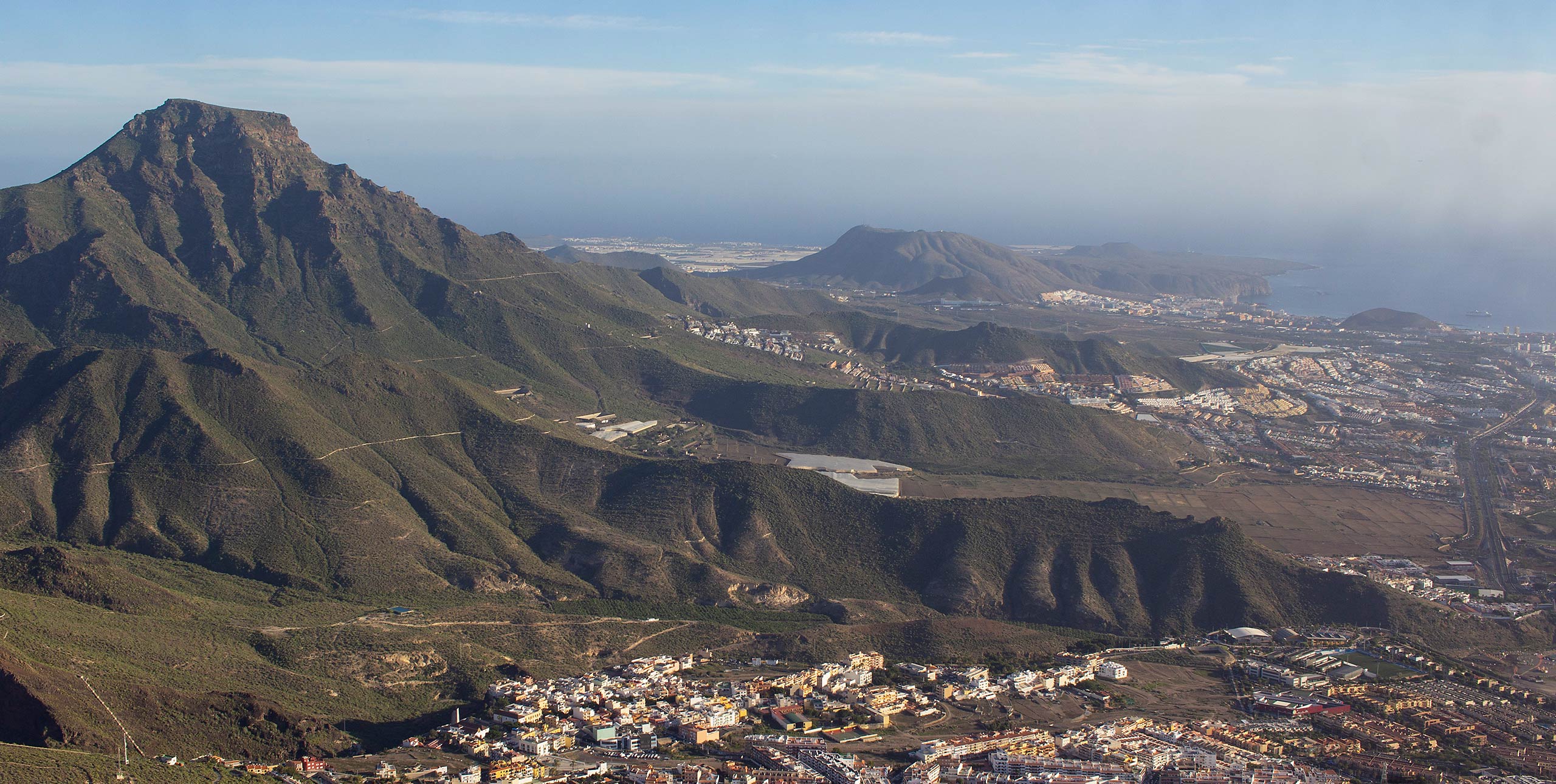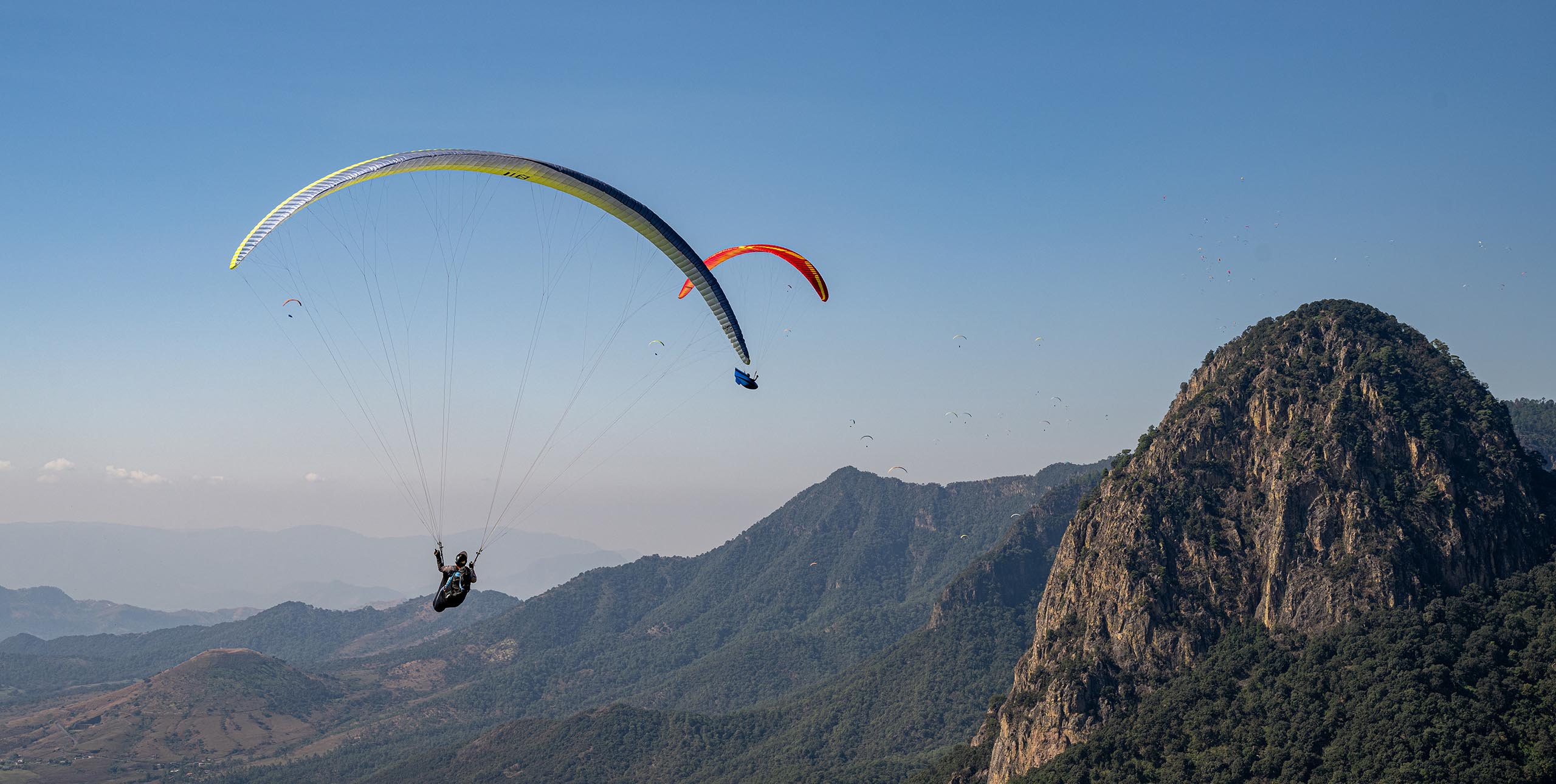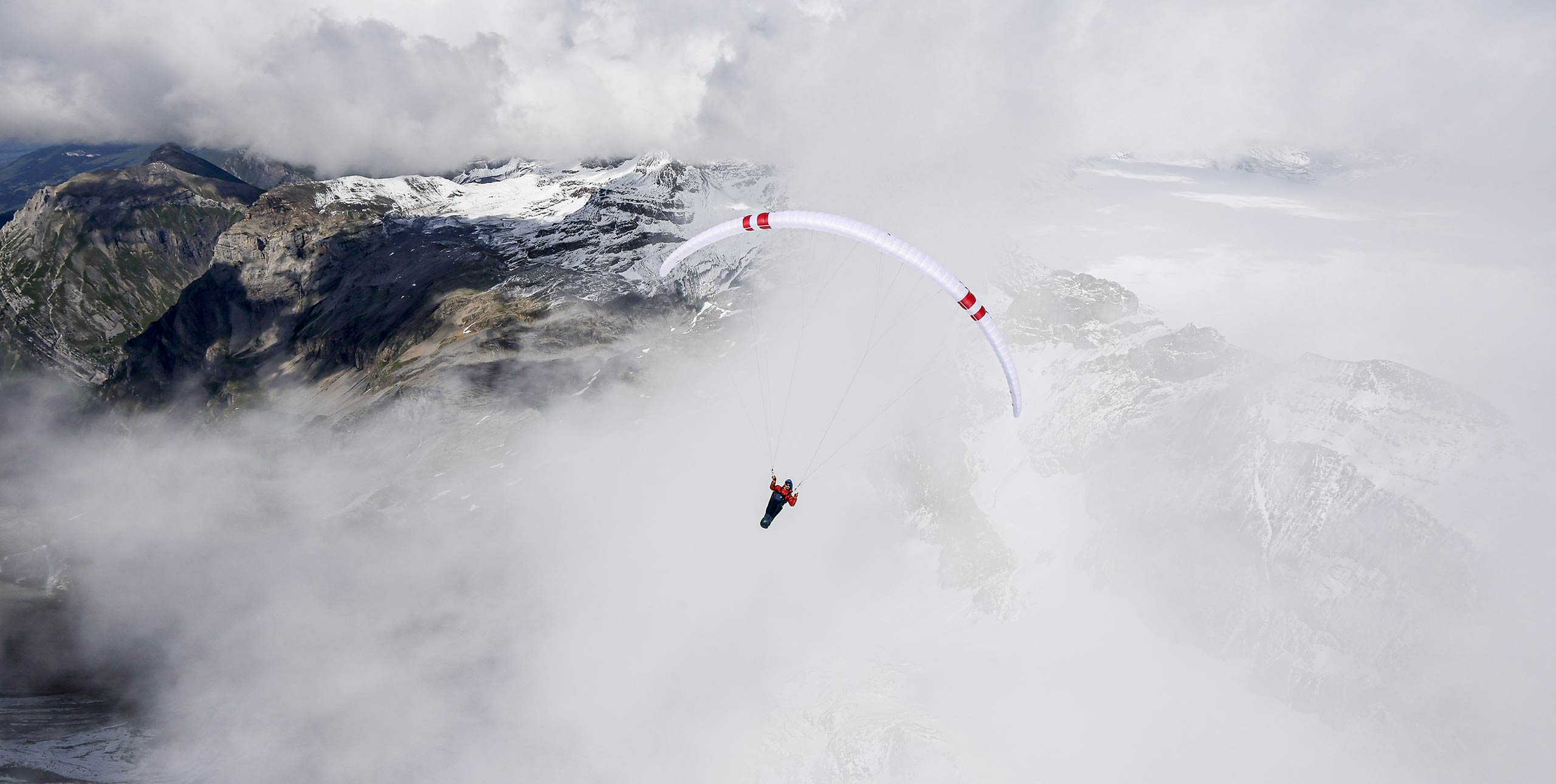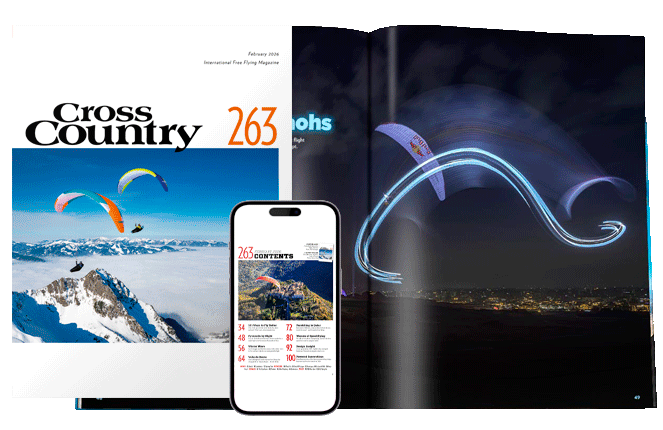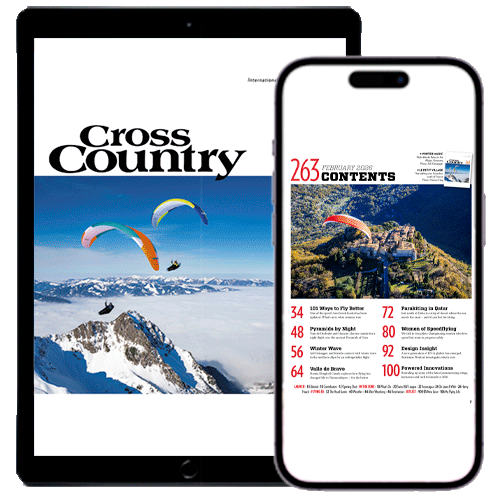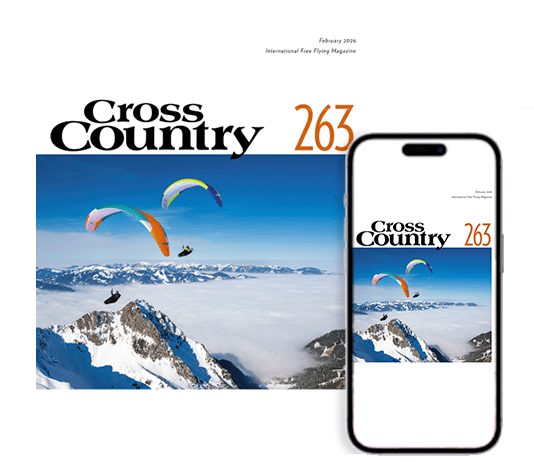Three continents, five countries, 23 tasks, 150 pilots: the 2002 World Cup tour was truly a gigantic experience. Scotty Marion tells us the story of his journey from unknown outsider, back in January, to World Number Two in October. Published in 2003 in Cross Country magazine.
Scotty Marion has had what his fellow countrymen might describe as one helluva year. Utah’s finest won the first PWC in Tapalpa, and hung on in there til the bitter end in Korea to take second place overall – the highest place an American has ever achieved. Scotty talked to Hugh Miller about his year on the tour: duelling with rival Alex Hofer, meeting Gin Soek Song and fighting with octopus legs.
So, in March 2001 I was on the truck going up to launch at Governador Valadares, and this Yankee upstart was telling me he was going to bust into the top three of the World Cup.
What happened next?
Well, I didn’t do so many contests in 2001, but I felt like the two PWCs I did fly that year really helped boost my learning curve. Even though my results weren’t so good – somewhere in the 20s – I came away from PWC Castejon and PWC Slovenia knowing so much more about when to race and when to slow down.
Where did you go to train last winter?
Actually I put my competition glider away in the loft until PWC Tapalpa in January. One of the French coaches asked me, ’You don’t train, how come you don’t train?’ I want to fly my Boomerang all the time because it’s so fun to fly, but I starve myself. For me it’s like this: when I go to eat I want to be hungry. I burnt out in my previous sports soccer, tennis and snowboarding and I decided I didn’t want to do that anymore. I want to be excited about flying. The first task of Tapalpa was the first time I’d inflated my glider in five months. I was a little bit wobbly – it took a half hour to settle into it again.
Yet you went on to win! How did you find the flying in Tapalpa?
At that time of year, Mexico has got to be the most consistent place in the world. The way it sets up in December through to February is unbelievable. I’d flown Mexico several times before, and I knew the terrain and what the flying would be like – it’s similar to the USA with strong conditions, windy and turbulent. This year Tapalpa was more stable. Some areas were very slow, and you had to move carefully. And there were other areas, along the rocks and along the cliffs, where you just flew straight, you never had to turn.
So knowing when to change gears was key to your victory in that first PWC?
Exactly.
Did you see any really good pilots come unstuck because they couldn’t change pace fast enough?
There’s a crazy amount of good pilots in the World Cup and, yeah, nobody flies perfect, everybody makes mistakes, it’s just whoever makes the least ends up winning. I really like the style of pilots like Peter Brinkeby, Kaspar Henny, Hans Bollinger and Chris Muller – pilots who aren’t afraid to push out front. I’m trying to learn from them, trying to model myself on them. The hard thing about that is they end up getting stuck low more often. I’m trying to race in front with those guys, but not have to see other gliders getting stuck to realise that were coming up to a bad area, but to perceive it beforehand.
Peter always seems completely unfazed about bombing out. He’ll be annoyed for half an hour, but he’s not really bothered, it doesn’t alter his view on life at all. Is that something that you’re trying to get a grip on as well?
I still get wound up by bombing out, but Peter’s naturally a really fast pilot. He has issues with slowing up. I’m slow by nature – I like to stay high and safe, and I’m having to learn how to race. We’re different and I’m trying to come up with the best balance possible. I was happy to take one day at a time and be OK with whatever happened, really just doing the best I can, and knowing that even if I hit the dirt I’m still in Mexico with my friends having fun.
So then there was a big gap, and on to Como, Italy.
I did a quick teaching trip to Brazil, then I was back home in the US teaching until I left for Como in July. Como was my worst comp I finished eleventh. I was a little bit worried about some business stuff and other things aside from flying, so I wasn’t really in the right mental state for competing.
When I interviewed you last year, you told me it was important for you to be in the present, and not be caught up by things in the past or future, if you’re to fly well.
That’s truer now more than ever. I spent some time recognising why I felt upset, and realising that I had to just move on. Flying amplifies the effect of any niggling doubts you have and makes it even more important that you resolve them so you can concentrate again. It’s like a little thermometer; it’s a very real gauge of how you’re doing.
Maybe the pilots down at the bottom of the PWC rankings should check in with their psychotherapists and get their issues resolved…
Yeah, I only charge 50 bucks an hour!
Did you lose your overall PWC lead quite early on at Como?
Yeah, in the first task Alex Hofer passed me, and I never could catch him after that. He was just flying perfect in Italy. I don’t think anyone’s ever flown that good in one stretch. I flew almost perfect in Mexico and only just beat him. Afterwards, I thought about that and thought, that’s kind of scary, then in Italy he was unreal. He went on to make some mistakes in Morzine, but not many.
Where did you go after Como?
I went to Switzerland and hung out with Alex and his girl, Elisabeth Rauschenberger. We were going to try a world record triangle, but it just rained. We went bowling and out to the movies all the usual stuff. Then we all left for Morzine. That comp was great – we had the best tasks of the year. But the take-off site, Mt Cherie, boy that’s a tricky little mountain. It usually has convergence setting up behind it, so you get left with loads of sinking air over the take-off with air always blowing down the hill.
It’s possibly the most evil take-off site in the world.
Oh man, a lot of people were having trouble launching. I remember running half way down the mountain before I was in the air.
And it’s not that far to the bottom.
No, that would be bad. But once we were up, the tasks were stunning – we flew all the way up to Lake Geneva, and back up to Sixt, near Chamonix. Flying over the ski resort of Avoriaz was mad too – it’s this big 60s concrete complex set up on top of these huge 2,000ft high vertical cliffs. I came third in that PWC.
Then Turkey.
Yeah, I came home first I was at JFK airport for a day, and I stayed with one of my students in New York city. It’s a great place I can see myself living there. Then I flew back over Europe to Istanbul for PWC Erzincan, then back to JFK and back over Europe again to Tokyo for the final!
Haven’t you got an atlas?! How was Turkey?
I think where we went, Turkey’s like a beginner Islamic country, you know? Not like Saudi Arabia would be. Western Turkey is more European, but it was still definitely a culture clash. The mosque was screaming every morning at 5 oclock, and there was a speaker pointing straight at our window! The hotel owner must have been playing tricks on us – it was definitely sleep terrorism.
Erzincans terrain looked quite barren with shallow mountains. How was the flying?
It was like a small Owens Valley, with brown south-facing mountains, and a lot of anabatic flow down low. I did a tandem flight on one of the practise days and it was quite turbulent which worried me, because I thought; If we have a lot of European pilots on competition wings and the conditions stay windy then we’re gonna have accidents. Then the weather changed. A lot of moisture came in and the lapse rate wasn’t nearly as steep, so we had calmer conditions.
Korea was plagued by bad weather as well, wasnt it?
Yeah, but you could tell the flying could be great there. The flying arena was made up of very intricate ridge systems with small ranges going up to between 400 and 800 metres. The first time I got up and looked down on the valleys, I thought, It’s going to be tricky here, and it was. I flew conservatively because if you ended up in the wrong spot, you were on the sunny side of the mountain, which should work, but you just got blown down. Because the valleys were so windy and intricate there was lots of bizarre convergence, and the locals with experience did very well.
What did you think of Korean culture?
They’re nice people. I loved the food, but it doesn’t love me. I have a weak stomach, and the food is hotter than hot, unbelievably hot.
Did you have the octopus dish, where they chop the eight legs off and they wriggle, half-dead, onto your plate?
Yeah, I was telling my brother last night. I’d grab them with the chopstick and they’d fight with ya.
How can that be a fair battle – a one-legged octopus against a human being?
Well, he kinda got me. I was about to stick it in my mouth and this Japanese girl said Aboni, aboni, or something, which means dangerous.
I’m like, What? Dangerous?
She’s like, It’s a little painful.
Painful? I ask.
She goes, Yeah, painful, the suckers still work on them.
So I stick it in my mouth and twirl it around, tongue wrestling with it, which is kind of exciting. Then I finally bit on it, and when I bit on it, it really freaked out. It flipped up and latched onto the roof of my mouth real hard.
So I’m going, Aaargh, aargh and they’re all laughing their heads off. So I take the chopstick, and I’m trying hard to prise it off, we had a little fight for about 15 seconds and I finally get it off my mouth, chew it up, and swallow. So I won. The roof of my mouth was numb for about two hours though.
Was it poisonous or something?
I don’t know, I thought it was either poison, or that it sucked so hard. Anyhow, he kinda got his word in.
Did you get a chance to meet up with Gin Soek Song while you were in Korea?
I got to go fly with him, that was a real dream. Here I am flying with Gin and he’s asking me my opinion, what I think about his glider. I couldn’t believe it, here’s Gin asking me what MY opinion is! Gin’s a great guy, very mellow, but you can tell he’s a little obsessive and compulsive like me. He likes things perfect, which is good. I don’t think I’d want to fly anyone’s wing who wasn’t that way. If I’m going to trust my life to a piece of equipment I want to be sure it’s done right.
Were there any accidents in the PWC this year?
There were a few minor crashes and a few reserve deployments people getting in a canyon low, over some rocks with strong thermal releases. But nothing serious.
The USA seems to be getting back on track. Who should we be watching next year?
Len Szafaryns done good for his first tour – he came fifty-fifth even though he missed the last two comps. Josh Cohn’s always there. Our new US Champ, Martin Orlik he might be Czech by birth but well have him in the next US team, no doubt. Eric Reid is also very good. He’s flying a Nomad now, and flying a serial glider in the World Cup is hard. And if Cherie Silvera gets a good glider she’ll be competing with the women. She’s not up to Louise’s level, but none of the women are, Louise is doing really good.
Who’s Louise’s nearest rival – is it Elisabeth?
Elisabeth flew just awesome in Italy but in Morzine she blew a ligament in her knee on launch with that damn back-wind. That dumb mountain. Obviously Petra won the overall Cup, but I think Louise would have won it if she hadn’t missed two of events even still she was only just beaten by Petra. That’s how good she was flying.
Even after Henrik’s accident, she managed to keep her head together. Did you talk to her about that?
When I saw her again in Turkey that’s the first thing I did, I just went up and hugged her, cried with her for a minute, and we talked about it. Even with that burden she’s done tremendously well to fly so well, it’s just incredible. She’s just one tough cookie, no doubt about that. She’s writing her autobiography at the moment.
What about the men – who’ coming through at the moment?
Next year’s going to be interesting. Alex will just get better, hopefully I will too. This year’s big surprise was Norman Lausch, who placed fifth overall in his first year unbelievable! I think Stephan Weiss will be back on fire, then you’ve got to consider the more experienced pilots like Hans Bollinger who just won’t lie down. And the Japanese are just going crazy Go Kato, Kaoru Ogisawa, Tsuyoshi Tsuji and Mastaka Kawachi. Korea was the first time in the PWC’s history that a European was not on the podium. It was me, Ogi and Tsuji. An American and two Japanese, now who’d a thought that?
Has your Christian faith influenced your flying at all?
I think so. Half way through the year I put a fish on my wing it was interesting to see people’s different responses. They’s say, “Whats that all about?” and they’d kind of paint you into a corner. I tell everybody, I’m not religious at all, I think religion does some good things, but I also think it does some bad things. My faith is between me and God. When people ask me, sure I tell them, but I like to party and drink hang out with my buddies and travel and have a good time.
What are the great evils of the paragliding world?
Without a doubt, it’s unscrupulous people trying to make a buck out of the sport. It’s become a problem of epidemic proportions here in the USA. Instructors who themselves have no idea how to fly are out there making students. How’s the student then supposed to be good, and safe, when their instructor has no idea what’s going on? It’s definitely an American theme. I call it the religion of capitalism. The accident rate is real high, much higher than it needs to be. It’s a big free for all right now. People are buying Katanas over the internet and showing up in places, it’scrazy.
Does that stem back from the problem we were discussing a year ago, where the USHGA is afraid to criticise instructors because its so scared of litigation?
Absolutely, it has got worse. Its now almost in a defunct situation where it’s almost inevitable that the sport is going to get shut down. I kind of wish our aviation controlling body, the FAA, would step in. When the FAA stepped in here and controlled skydiving, the sport went through a tremendous safety overhaul. There’s some bad things when the government steps in, but regulation holding people accountable is a good thing. If it saves one person’s life it’s worth it. That’s my opinion, but I’m so angry about it because my hands are tied.
What were your best memories of this year’s tour – that you can hang on to to keep you going through the winter?
After Mexico I was just in shock. I came away from there thinking, I cannot believe I won. I honestly cannot believe that. That was just amazing to me. To work for so long and then finally achieve something.
The summer after this interview was published Scotty Marion went missing while flying in Switzerland. Despite an extensive air search, he was not found. As of this update in January 2011 he is still missing.
• Got news? Send it to us at news@xccontent.local
Subscribe to the world’s favourite hang gliding and paragliding magazine


